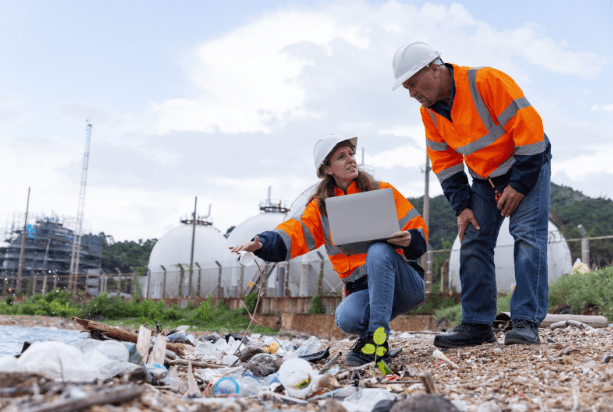Every year, millions of tons of discarded electronics from smartphones and laptops to TVs and appliances enter the global waste stream. E-waste contains valuable materials like gold, silver, and copper, but also hazardous substances such as lead, cadmium, and mercury. Traditional recycling methods often rely heavily on manual sorting, which is labor-intensive, error-prone, and can expose workers to harmful materials. To tackle these growing challenges, EQUIP RECYCLING LLC is leading the way in transforming how electronic waste is processed and recovered through advanced, AI-powered solutions. Learn more at https://equiprecycling.com.
With the volume of e-waste expected to grow by nearly 30% in the next decade, the recycling industry faces mounting pressure to process more material, faster and safer than ever before.
Introducing AI-Powered E-Waste Sorting
AI-powered sorting systems combine machine learning, computer vision, and robotics to identify, classify, and separate different types of electronic components with unmatched precision.
Here’s how it works:
- Visual Recognition: High-speed cameras and AI algorithms scan each device or component as it moves along the conveyor.
- Material Identification: The system uses advanced sensors to detect the material composition: plastics, metals, glass, or circuit boards within milliseconds.
- Automated Sorting: Robotic arms, guided by AI, instantly separate and direct items to the correct recycling stream for disassembly or processing.
- Data Feedback Loop: The AI continuously learns from each cycle, improving accuracy and efficiency over time.
This process drastically reduces contamination in recycled material streams and increases recovery rates for valuable resources, turning what was once “waste” into a renewable supply of industrial materials.
Efficiency, Safety, and Sustainability
The benefits of AI-powered sorting extend far beyond speed:
- Up to 95% accuracy in identifying and separating recyclable materials.
- 50% reduction in human labor requirements, allowing staff to focus on safer, higher-value tasks.
- 40% increase in material recovery, particularly in precious metals and reusable plastics.
- Improved safety, as employees are no longer directly exposed to hazardous or sharp components during sorting.
This technology not only boosts operational efficiency but also aligns with broader sustainability goals, reducing landfill waste, conserving natural resources, and lowering the carbon footprint associated with mining and manufacturing new materials.
According to Rishi Balani of EQUIP RECYCLING LLC, “The future of recycling lies in intelligence, using AI and automation to not only recover materials but to rethink how we design, collect, and reuse electronics in a truly circular economy.”
A Smarter, Circular Future
The integration of artificial intelligence into recycling operations represents a monumental step toward a circular economy, where materials are reused, repurposed, and reintroduced into production instead of being discarded.
AI systems are part of a larger vision: transforming recycling from a reactive process into a proactive, data-driven ecosystem. By tracking the types and quantities of recovered materials, AI can help manufacturers design products that are easier to recycle in the future, creating a continuous feedback loop between producers and recyclers.
Empowering Communities and Businesses
Beyond large-scale industrial applications, many companies also work with municipalities and corporate partners to establish more brilliant e-waste collection and processing programs. Through data analytics, the company helps local governments identify recycling trends, forecast material flows, and optimize logistics for collection events.
Businesses benefit as well, gaining access to transparent reporting on how their e-waste is processed and the measurable environmental impact of their recycling efforts, essential for meeting sustainability and ESG (Environmental, Social, and Governance) goals.
The Road Ahead
As e-waste continues to rise globally, innovations like AI-powered sorting systems are vital for ensuring that recycling keeps pace with consumption. By blending artificial intelligence, automation, and environmental stewardship, the company is not just improving recycling; it’s reinventing it.



























